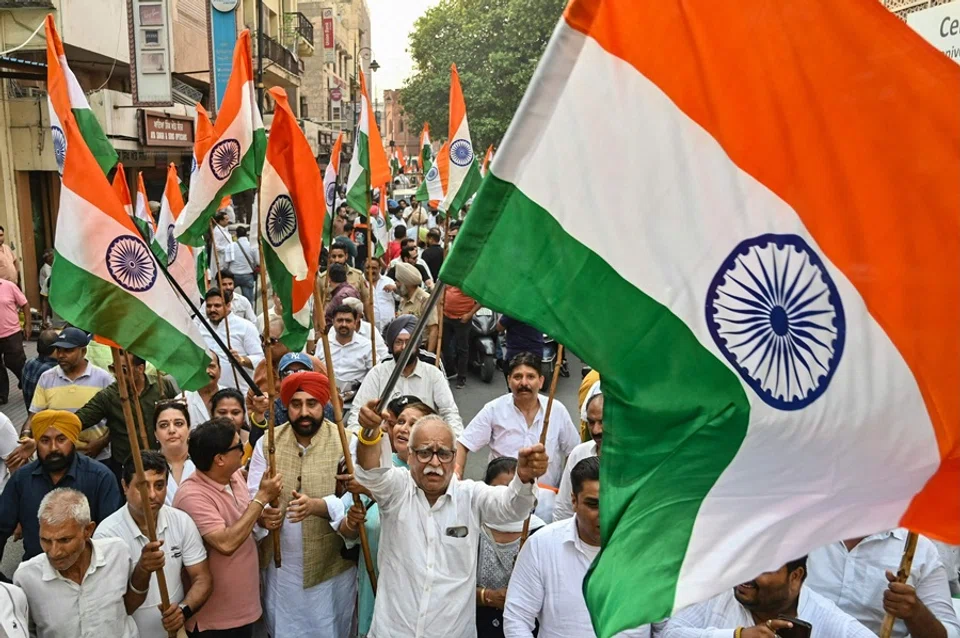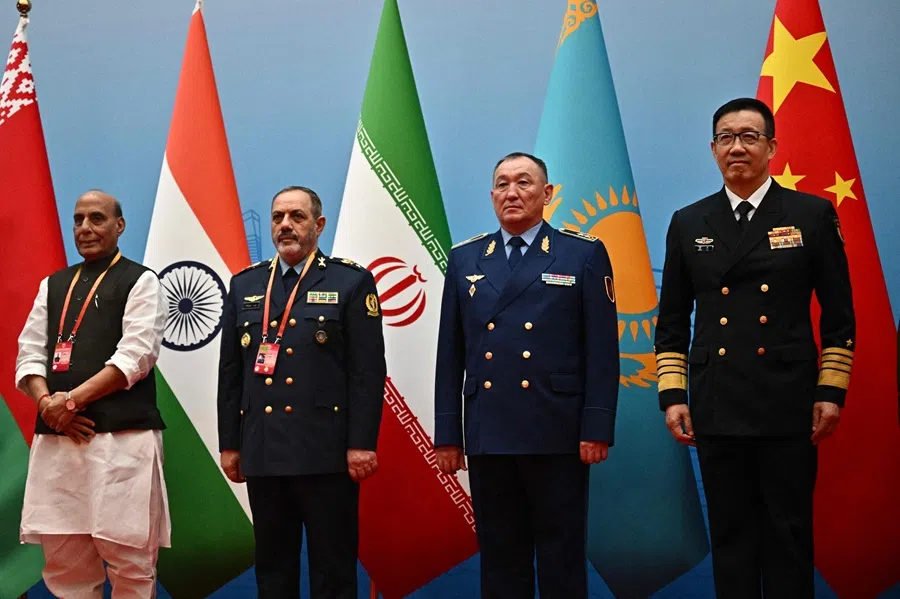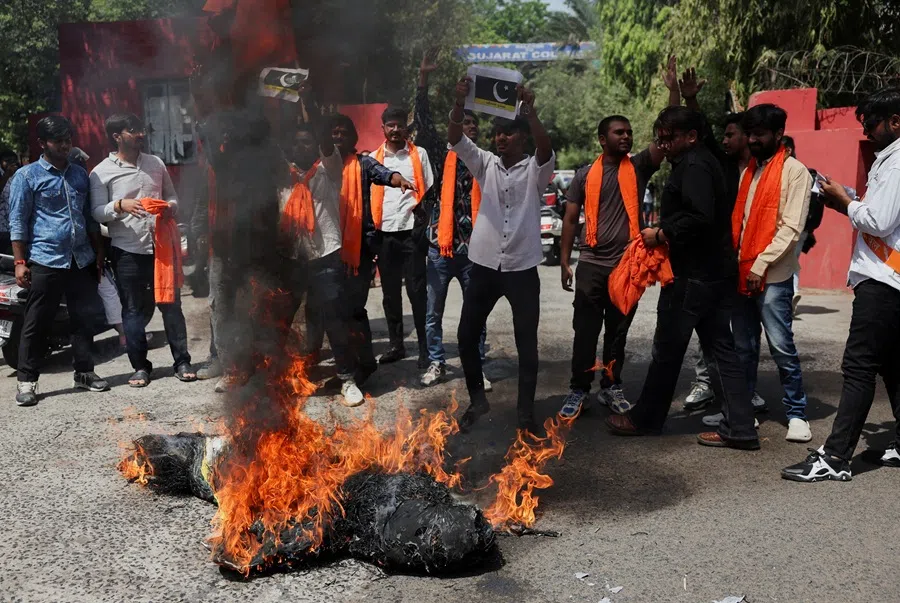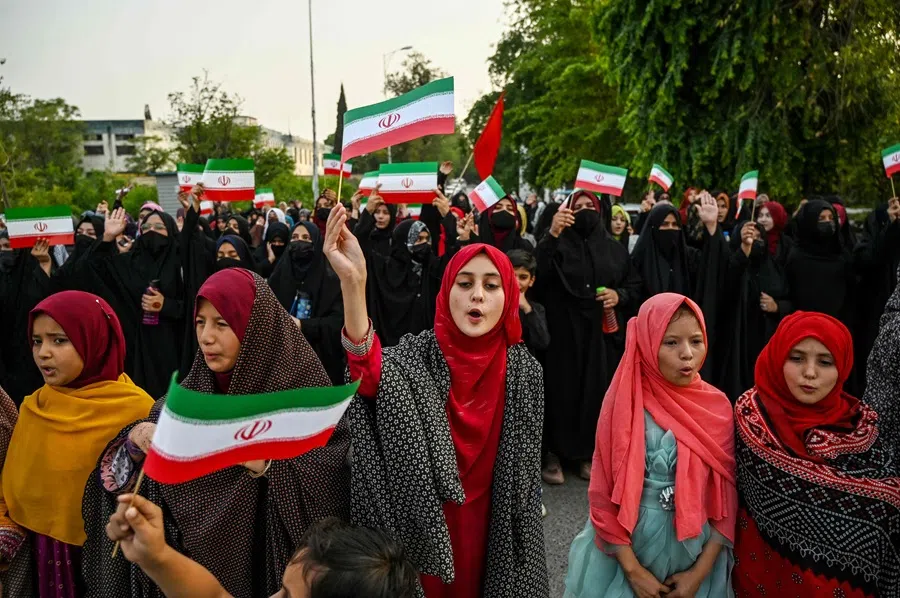Why India feels alone in its fight against terror
For India, its fight against cross-border terrorism extends beyond military tactics; it is also a battle against the narrative propagated by Pakistan. This challenge, as Indian analyst Rishi Gupta observes, is unlikely to diminish given Pakistan’s strategic relationships with the US and China, contributing to India’s feeling of isolation.

As the global summit season picks up in momentum, India is pulling out all the stops to find consensus against terrorism in all its forms. This is happening in the wake of heinous terrorist attacks in Pahalgam, Union Territory of Jammu and Kashmir, on 22 April, during which 26 people were killed.
Why did SCO not support India?
While India carried out a military operation against the perpetrators through “Operation Sindoor”, Delhi is also making substantial diplomatic efforts to reach out to the global community.
At the recent BRICS summit in Brazil, India successfully got all member countries to sign the Rio de Janeiro declaration condemning the April terror attacks in India. The statement said, “We reaffirm our commitment to combating terrorism in all its forms and manifestations, including the cross-border movement of terrorists, terrorism financing and safe havens.”
The terror attacks were also mentioned in the joint statement of the Quad Foreign Ministers’ Meeting on 1 July, which included lines such as “We condemn in the strongest terms the terrorist attack in Pahalgam, Jammu and Kashmir on April 22” and “Quad unequivocally condemns all acts of terrorism and violent extremism in all its forms and manifestations, including cross-border terrorism, and renews our commitment to counterterrorism cooperation”.
While member countries have supported China’s calls for decisive actions against terrorism in all forms, the SCO has failed to use the same parameters in condemning Pakistan.
As the key member of these two major multilateral groupings, India has found support and successfully made its case in international forums. However, there has been one exception, in which India experienced a significant setback.
On 26 June, the defence ministers of ten member countries gathered at the Shanghai Cooperation Organisation (SCO) Defence Ministers’ Meeting at Qingdao in China. On this rare occasion, no joint statement could be released after the meeting as “one country objected” to the specific mention of the terror attacks in India, and refused to condemn them.

For a grouping that has led a strong advocacy against terrorism and has a dedicated Regional Anti-Terrorist Structure (RATS) mechanism, why did the SCO not support India?
India’s protest against ‘double standards’
A straightforward answer to the SCO defence ministers’ meeting failure to release a joint statement would be India’s Defence Minister Rajnath Singh’s refusal to sign it due to a lack of consensus on the issue of terrorism and non-inclusion of the Pahalgam terrorist attack in the statement. In a press briefing, India’s Ministry of External Affairs clarified that “some member states of the SCO could not reach a consensus on certain issues, which is why the Joint Statement was not adopted”.
India was apparently making an implicit reference to Pakistan, a key SCO member often associated with cross-border terrorism. India, which has been on the receiving end of the Pakistan-sponsored cross-border terrorism, has been a strong advocate for making the anti-terrorism agenda an active diplomatic exercise and continues to raise awareness about it.
At the same time, since the SCO was formed in 2001, China, as the founding member of the multilateral forum, has used the platform to voice out against groups that it deems separatists, especially in Xinjiang. While member countries have supported China’s calls for decisive actions against terrorism in all forms, the SCO has failed to use the same parameters in condemning Pakistan. The SCO is often criticised for its selective approach to terrorism, particularly its silence on threats raised by India, which, in Delhi’s view, undermines the organisation’s credibility and effectiveness.
During America’s war on terror, Pakistan helped carry out military operations in Afghanistan.
Pakistan offers strategic value to the US and China
While Pakistan accuses India of falsely implicating it for sponsoring cross-border terrorism, including for the Pahalgam terror attack, what the world might know is that Osama bin Laden — the most wanted terrorist accused of carrying out the 9/11 attacks in the US, was found in Pakistan’s Abbottabad — a few miles away from a Pakistani military cantonment.
From what India and the US have personally faced at the hands of Pakistan in terms of terrorism, the key question still remains: how does Pakistan manage to galvanise enough diplomatic support across the world?

Despite Pakistan’s proven and well-documented involvement in terror-related incidents, Pakistan continues to find support in the US. Just before the US launched strikes on Iran, Pakistani army chief Asim Munir was hosted by President Donald Trump for a private lunch at the White House on 18 June. While this has raised temperatures in India, as the partnership between India and the US has grown exponentially in the last decade, Munir’s hosting at the White House was seen as a significant setback for friendly ties between Delhi and Washington. But that’s where the answer lies — Pakistan’s strategic locations.
Because of its strategic geographical location, Pakistan offers great value to the US. It borders Afghanistan, China, Iran, and India, making it a crucial player in regional security and US military operations. During America’s war on terror, Pakistan helped carry out military operations in Afghanistan. A meeting between Munir and Trump took place just four days before the US B-2 bombers bombed nuclear facilities in Iran on 22 June, and indeed, any support from Pakistan was meaningful in the operations that the US Air Force planned next door.
China’s strategic cooperation with Islamabad creates additional pressure on Delhi from the western front, effectively opening a second front...
China, on the other hand, has strategically benefited from its ties with Pakistan. Through the China-Pakistan Economic Corridor, which serves both trade and military interests and is counted among China’s most significant Belt and Road Initiative investments, China has gained the most strategic direct access to the Arabian Sea and the Persian Gulf — a critical region for global oil trade and maritime routes. Pakistan’s strategic depth between the Middle East and South Asia helps China with regional security vigilance. Also, given China’s ongoing border disputes with India, particularly highlighted by the 2020 Galwan clash in the Himalayas, Beijing finds strategic advantage in its close ties with Islamabad.

China’s strategic cooperation with Islamabad creates additional pressure on Delhi from the western front, effectively opening a second front — something India’s military has been forced to prepare for over several decades now.
Besides this, Pakistan is a high-value defence export market for China. It is worth noting that after Operation Sindoor, Islamabad is looking to buy more Chinese weapons, including an anti-ballistic missile system, to deter future conflict with India. Therefore, Pakistan’s strategic offerings to global powers present a tactical and political challenge to India.
... Pakistan uses India’s geographical size — as the biggest country in the region — to project Delhi as a ‘hegemon’ that has disputes and some conflicts with geographically smaller neighbours in the South Asian region...
Fighting the Pakistan-led narrative
Besides offering its strategic location to the US and China, Pakistan, in many ways, overpowers India in building the global narrative. For instance, Pakistan effectively sells its narrative on Kashmir across Europe and the Islamic world. It advocates third-party intervention, including that of the US, China and the United Nations, knowing India would never agree. Pakistan further takes advantage of India’s historical position on Kashmir, that it is an internal matter of India.
At the same time, Pakistan uses India’s geographical size — as the biggest country in the region — to project Delhi as a ‘hegemon’ that has disputes and some conflicts with geographically smaller neighbours in the South Asian region — creating a view that does not help India. Also, public relations is a very strong part of the narrative building in Pakistan that has been an integral part of their hybrid warfare.
Therefore, India’s fight against cross-border terrorism is not merely about the tactical and military advantage that Delhi may have over Islamabad; it is also about fighting the Pakistan-led narrative. Pahalgam has served as a sobering reality check for India, revealing the limits of multilateral forums where strategic interests often outweigh unified stands against terrorism — as seen both at the SCO defence ministers’ meeting and in India’s evolving partnership with the US.
Hence, if India is to effectively counter Pakistan’s hybrid warfare, it must strengthen its strategic communication with the global community and adopt a bottom-up approach to undermine Pakistan’s structural advantages. Lastly, India’s fight against terrorism has largely been a solitary effort — and given Pakistan’s strategic ties with both the US and China, this situation is unlikely to change anytime soon.



![[Big read] When the Arctic opens, what happens to Singapore?](https://cassette.sphdigital.com.sg/image/thinkchina/da65edebca34645c711c55e83e9877109b3c53847ebb1305573974651df1d13a)
![[Video] George Yeo: America’s deep pain — and why China won’t colonise](https://cassette.sphdigital.com.sg/image/thinkchina/15083e45d96c12390bdea6af2daf19fd9fcd875aa44a0f92796f34e3dad561cc)
